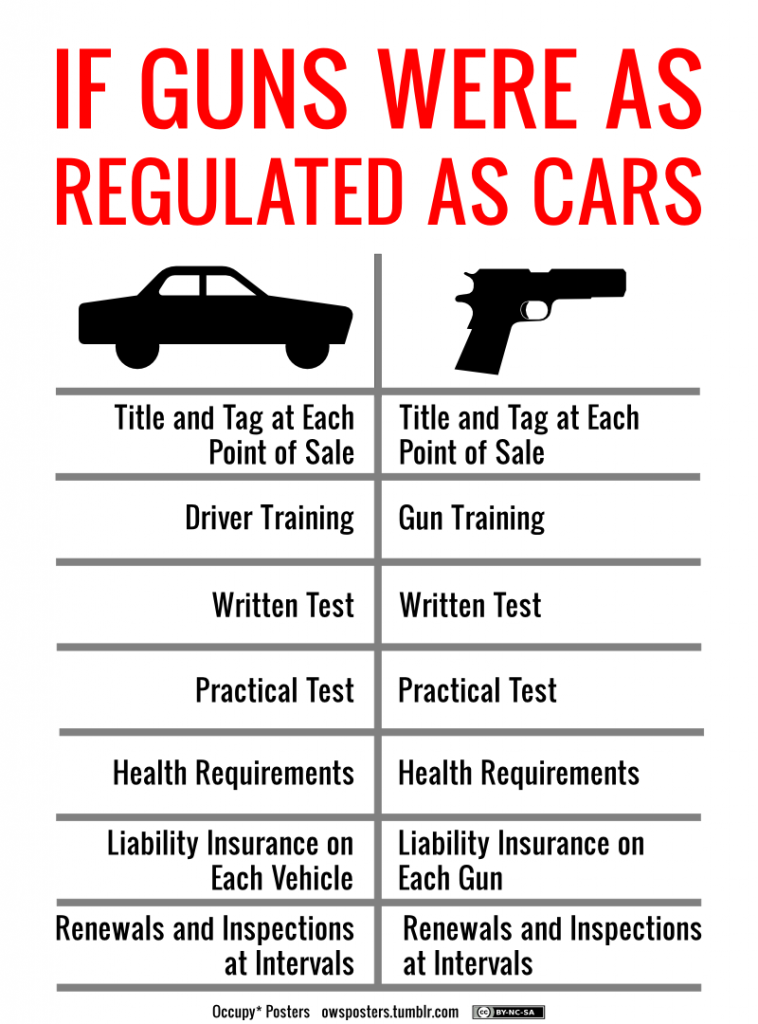In the United States today there are over
250 million cars. We register them. We tax them. We require a license to drive one. We put tags on them so that law-enforcement can readily identify them. They are numbered so that each vehicle can always be accounted for. We set safety standards for the use of our cars including such things as seat belts, turn signals, and special seats for children. We have created large bureaucracies to manage all of this. And no one questions the value, necessity, or right of government to regulate the manufacture and use of motor vehicles in the United States. Nor does all of this reduce the availability of cars. The reason we regulate the manufacture and use of motor vehicles is because they are dangerous and, uncontrolled, could become a public nuisance.. In 2011, roughly 32,000 people died in auto accidents.
In the United States today there are well-over
200 million firearms in private hands. There is a huge lobby devoted to obstructing any regulation of these firearms, and it has been impressively successful to that end. We are warned that
any regulation of firearms puts us on the "slippery slope," which will bring to an end private gun ownership in America. In 2007, over 30,000 people in the U.S. died at the hands of guns, including a significant number of suicides.
Guns are as dangerous as cars, but, when it comes to cars, there is no "slippery slope." There is no paranoia over regulation. Why is the regulation of cars to the benefit of society as a whole acceptable but the regulation of firearms, which are just as dangerous, not? What's the problem?
